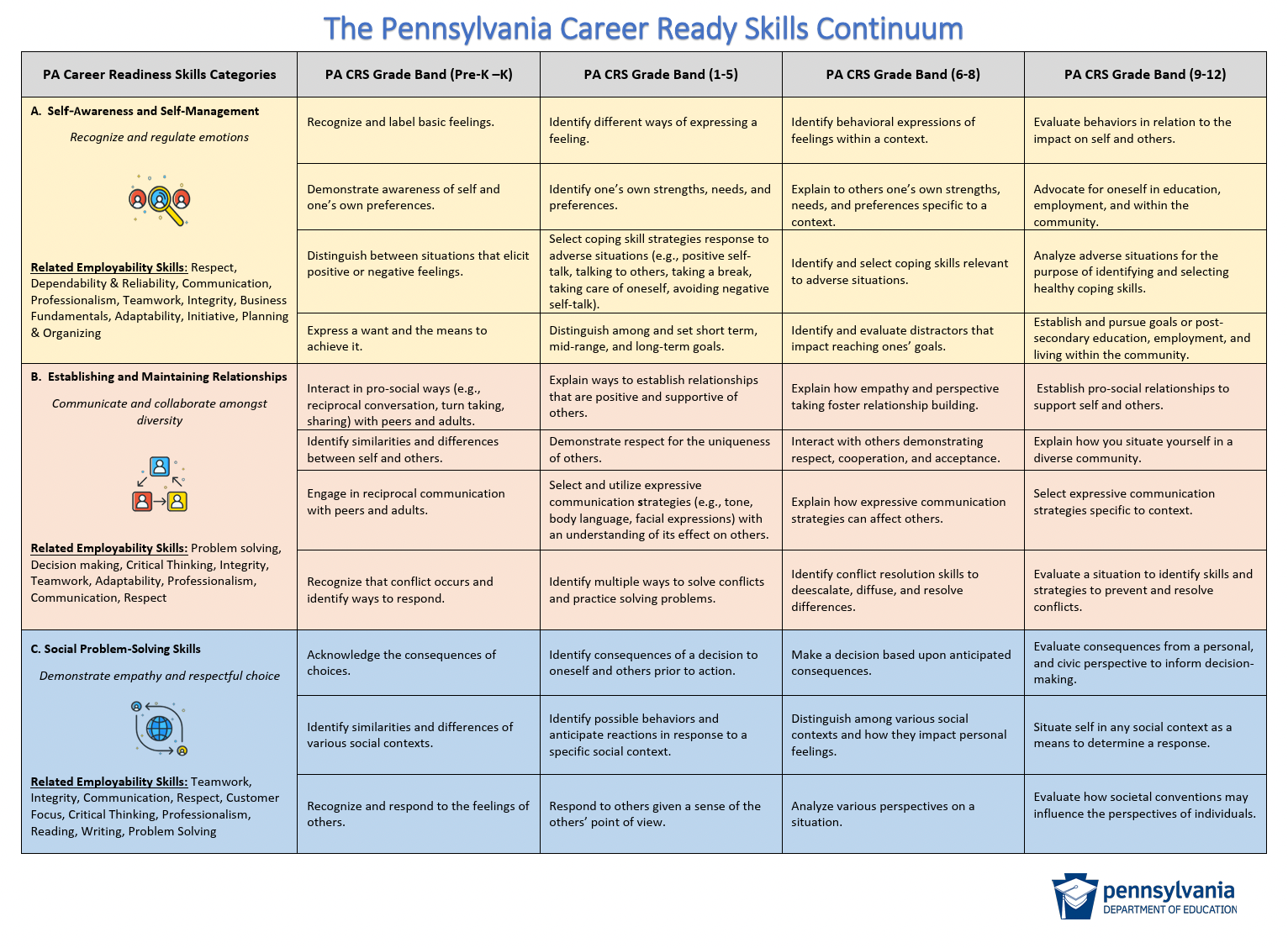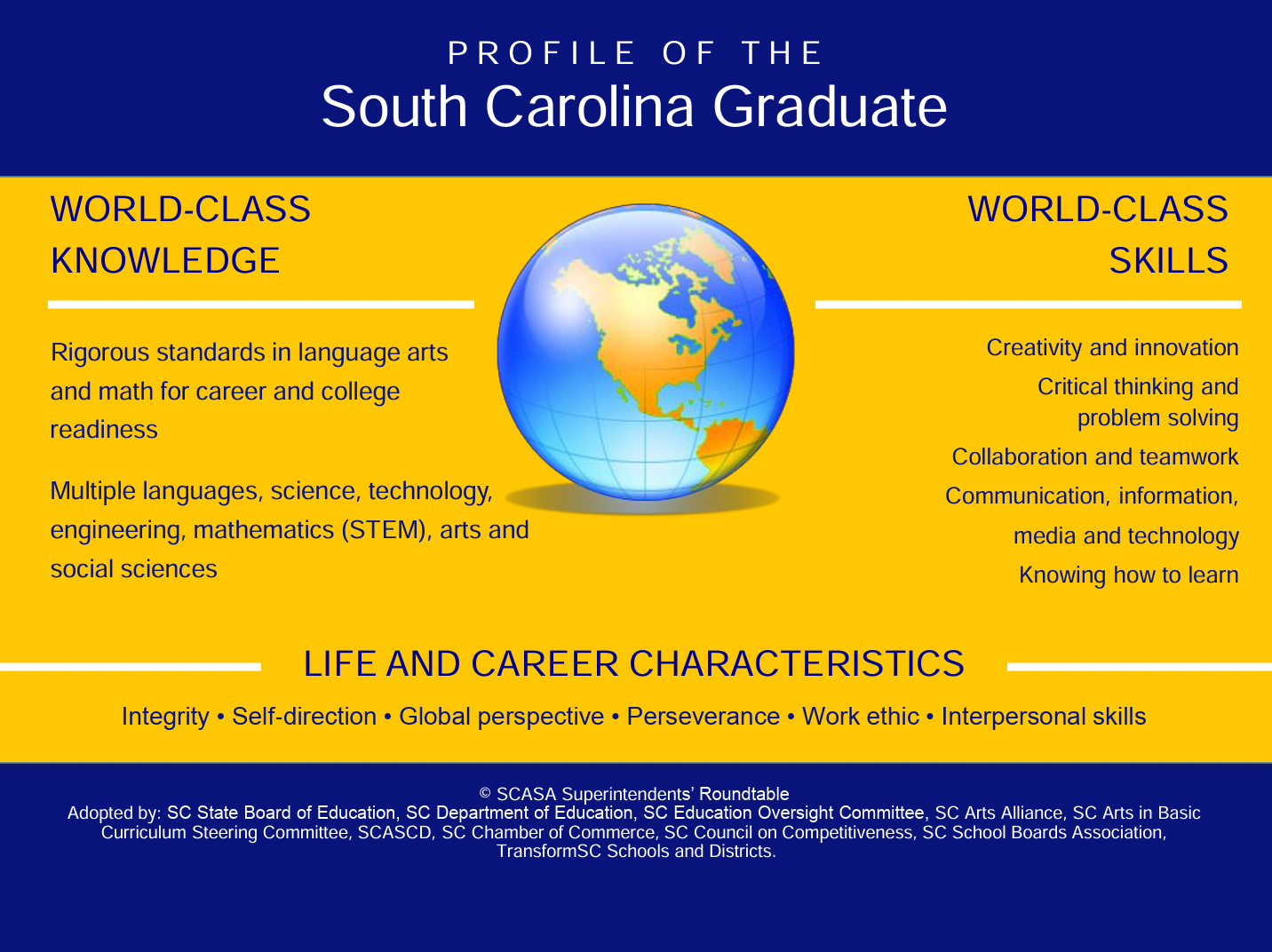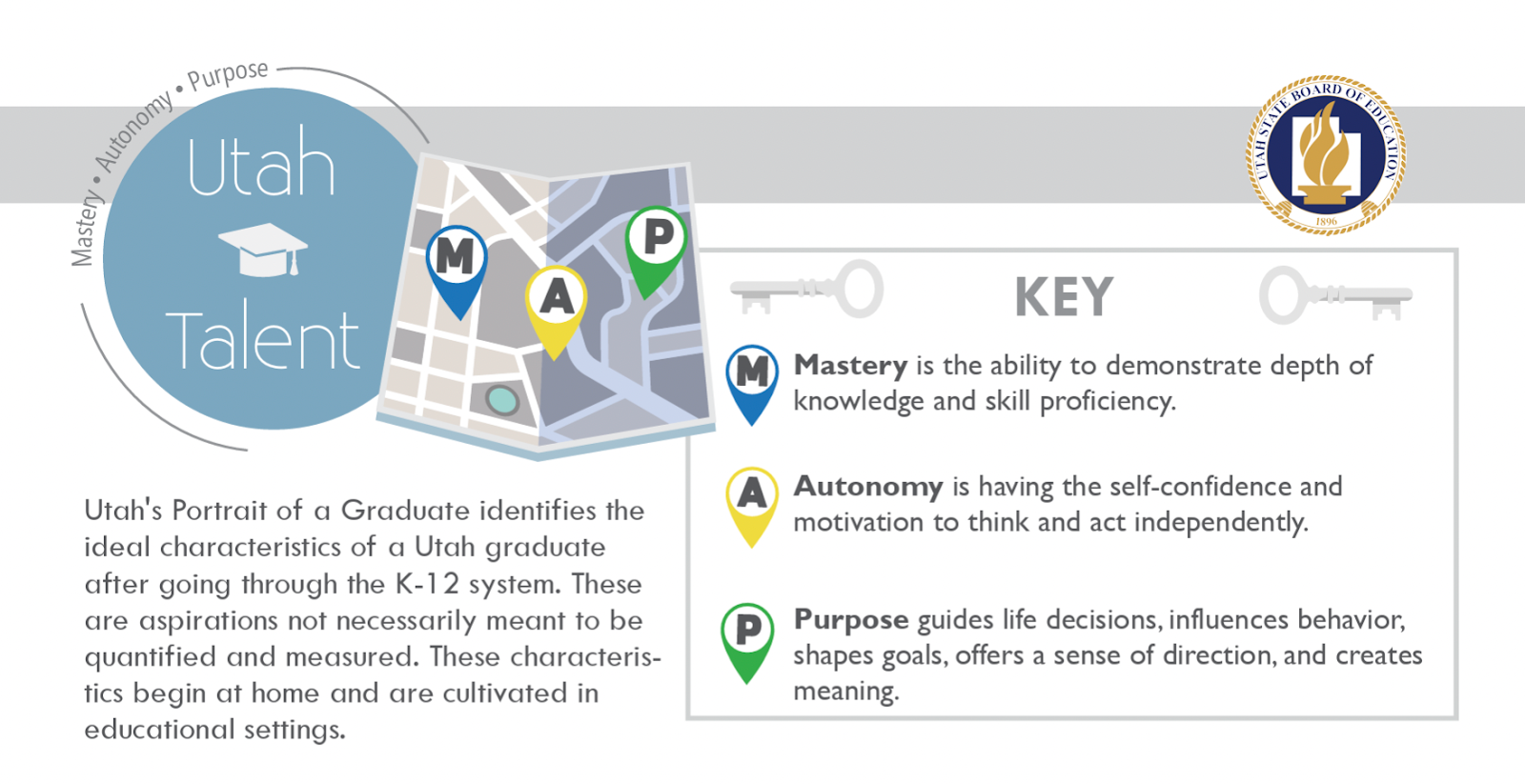In many cases, the process of creating a Portrait of a Graduate implicitly ties in discussions of career readiness. However, some frameworks are making this connection explicit in an effort to align PreK-12 learning experiences with workforce preparation.
Several states have already combined career readiness and durable skill building into their graduate frameworks. Texas’ Positive Character Traits Education, for example, leans on character development practices to integrate the development of personal and interpersonal skills throughout students’ K-12 experiences. In this same vein, Illinois’ Essential Employability Skills promote the growth of transferable skills that set students up for success in their education and career paths. While the naming of these frameworks may differ, the visible effort to prioritize transferable durable skill building across the country underscores just how essential this work is.

.png?width=561&height=450&name=unnamed%20(2).png)
Kansas has also made great efforts in recent years to ensure students have the academic, cognitive, technical, and employability skills to succeed in their lives after graduation. Individual Plans of Study, coupled with opportunities for students to become civically engaged, support each student in grades 8 through 12 to apply academic and personal development to their real-life interests. Through self-exploration, career exploration, and career planning, Kansas students combine their strengths, interests, and goals to form a guiding roadmap to follow after they graduate.
Simultaneously, organizations like the National Association of Colleges and Employers are identifying career-ready skills and empowering schools to incorporate them into K-12 learning. Their Career Readiness Competencies mirror both the skills valued by employers and those being added to Portraits of a Graduate nationwide.

Career readiness integration has proven a great way to incorporate diverse opinions from community stakeholders. According to Fordham Institute surveys of families of K-12 children, despite wide variation in preferred terminology used for durable skills training and human-centered skill development, families of K-12 students agree overall that whole-student education benefits their children’s learning experiences. By making an explicit connection between durable skills and career readiness, states and districts can offer holistic learning experiences while respecting the expectations of their learning communities.
In fact, the Fordham Institute family surveys revealed that durable skills like reasoning + problem solving ranked highest among families’ education priorities, well above any academic competency. While mathematics, career and technical education, and English skills were also popular, so were taking responsibility, communicating effectively, and building self-confidence. Setting goals, approaching challenges with positivity, and developing self-esteem + self-efficacy were deemed important by 80-90% of respondents.


Several states have undergone multi-step processes to build career-ready Portraits of a Graduate, learning from employment trends, collaborating and consulting with local businesses, and incorporating the voices of community stakeholders. While these processes take time to craft, they also set up states and districts for intentional implementation, including teacher preparation, family involvement, assessment building, and more. Following are just a few of the steps taken by states to complete future-focused graduate frameworks.
The Pennsylvania Career Ready Skills Continuum
Pennsylvania's approach to developing its Career-Ready Skills was a collaborative, stakeholder-driven process aimed at aligning educational outcomes with the evolving demands of the workforce. The Pennsylvania Department of Education (PDE) recognized the need to equip students with more than just academic knowledge, emphasizing the importance of durable skills—such as critical thinking, collaboration, and emotional intelligence—that are essential for success in both career and personal life.
Taking recommendations from its Internal Career Readiness Committee, the PDE embarked on a multi-year initiative to create a comprehensive framework known as the Career-Ready Skills Continuum. This initiative was grounded in extensive research and involved a diverse array of stakeholders, including:
-
- Educators: Teachers and school administrators from various districts contributed insights on integrating skill development into existing curricula
- Employers and industry leaders: Representatives from different industries provided perspectives on the skills necessary for the modern workforce
- Community members and families: Engagement sessions gathered input from families and local organizations, ensuring the framework resonated with community values
- Students: Student feedback was solicited to understand their experiences and aspirations, ensuring the framework addressed their needs
The collaborative process included public forums, surveys, and focus groups conducted across the state, facilitating a comprehensive understanding of the skills deemed essential for graduates. Together, they created a framework to support students through vertically aligned career-ready skill building from PreK to graduation.
To operationalize their Career Ready Skills Continuum, the PDE provides educators with a Career-Ready Skills Toolkit, including implementation guidance and developmentally appropriate strategies to embed these skills into daily instruction. Key components of the implementation strategy include:
-
- Professional development: The state offers training programs to help educators effectively integrate career-ready skills into their teaching practices
- Curriculum resources: A repository of lesson plans and activities aligned with the continuum supports teachers in delivering consistent skill development opportunities
- Assessment tools: Formative assessment instruments have been created to monitor student progress in acquiring these essential skills
- Community partnerships: Schools are encouraged to collaborate with local businesses and organizations to provide students with real-world applications of the skills learned
The PDE's commitment to this initiative reflects a holistic approach to education, aiming to produce graduates who are not only academically proficient but also equipped with the inter- and intrapersonal skills necessary to thrive in a dynamic and interconnected world.

The Portrait of a South Carolina Graduate
The Portrait of the South Carolina Graduate also takes a career-readiness approach. It integrates personalized, competency-based learning as it prepares students for life after K-12, emphasizing:
-
- Expressing ideas through oral, written, and digital communication
- Building networks by fostering teamwork and leadership
- Well-being through self-advocacy and positive life practices
- Navigating conflict and developing interpersonal skills
- Engaging as a citizen to promote civic responsibility
South Carolina’s Profile of a Graduate was developed by the South Carolina Department of Education (SCDOE) in collaboration with educators, business leaders, policymakers, and nonprofit organizations. The state legislature played an active role, using the Profile to guide discussions on workforce readiness and economic development.
The creation process took approximately two years, during which SCDOE held stakeholder roundtables, surveyed educators, and consulted with industry leaders to ensure the competencies aligned with employer needs. The state also looked at national and international models to benchmark best practices.
For implementation, SCDOE released a Competency Toolkit, which includes performance rubrics, learning progressions, and cross-disciplinary strategies to embed the competencies into daily instruction, project-based learning, and career-technical education programs. South Carolina also developed a Personalized Learning Framework, allowing districts to design innovative instructional models that align with the Portrait while maintaining local flexibility.

Utah’s Talent MAP
Utah’s Portrait of a Graduate, called the Talent MAP, was developed over a three-year process spearheaded by the Utah State Board of Education (USBE). The initiative began with a Graduation Task Force formed in 2018, which reviewed existing graduation requirements, workforce trends, and research on whole-student education.
The stakeholder engagement process was extensive, involving public forums, employer roundtables, teacher surveys, student advisory councils, and higher education representatives. The state emphasized the importance of business sector collaboration, ensuring that the skills identified in the Talent MAP reflected economic trends and employment demands.
Utah’s implementation strategy included:
-
- Developing grade-banded competencies that break down each Talent MAP skill into developmentally appropriate benchmarks
- Providing model rubrics for teachers to track students’ progress in mastering competencies
- Offering professional development and micro-credentialing to help educators integrate the framework into daily instruction
Updating Utah’s Personalized, Competency-Based Learning (PCBL) Framework to align with the Talent MAP, allowing schools to use performance-based assessments instead of seat-time requirements

To learn more about how states are incorporating durable skills into academics using Portrait of a Graduate frameworks, download our white paper, Portrait of a Future-Ready Graduate: Why Human Skills Matter More Than Ever.





